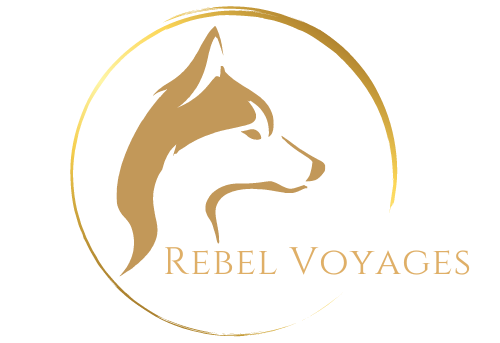From Fear to Fearless: Transforming Your Life with Courage
Hey, you know these moments when you wish you had more courage but fear is holding you back? It’s totally a part of being human, right? It’s an emotion that’s been with us since forever, keeping us safe but also holding us back sometimes. But guess what? Inside each of us is this potential to rise above our fears, to change our lives with courage. Picture standing on the edge of this vast, uncharted wilderness, the unknown stretching out in front of you. In that moment, heart pounding and mind racing, courage whispers to you, like, “Hey, take that step forward.”
When you start to gain courage, it’s like discovering a new part of yourself. On this journey from fear to fearless, let’s really dig into what embracing courage means. We’ll explore the stuff that holds us back, the steps we can take to gain courage, and the amazing rewards waiting for us on the other side. Whether it’s facing something deep down, standing up for what’s right, or just stepping out of our comfort zones, courage is the key to unlocking a more awesome, fulfilling life. This journey will not only help you gain courage but also show you how to apply it in various aspects of your life
What Does Courage Really Mean?
Courage, often like bravery, is this multi-sided quality that goes beyond just being heroic. It’s about having the mental and moral strength to face fear, difficulty, danger, uncertainty, or pain head-on, without letting it take over. There are all kinds of courage – emotional, intellectual, moral, physical, you name it. Basically, courage isn’t about not feeling fear; it’s about feeling it and still moving forward anyway.
This can be seen in situations ranging from speaking in public, to being vulnerable and expressing one’s true feelings, to questioning established norms to standing up against injustice. The brave person feels the fear but chooses to act anyway. Courage is a dynamic and essential trait that empowers individuals to confront their fears and challenges, leading to personal growth and positive societal change. It’s a quality that can be nurtured and developed, enabling us to live more authentic, impactful, and fulfilling lives.
By learning how to gain courage, you can unlock new potentials within yourself.
- Standing Up to Bullying or Injustice: Whether it’s at work, school, or just hanging out, standing up against bullying or any kind of injustice takes real courage. It means calling out bad behavior, defending someone who’s getting treated unfairly, or challenging unfair practices, even if it’s tough.
- Going on a Solo Trip to a Foreign Country: Taking off on a solo adventure to a foreign country is more than just sightseeing. It’s a perfect way to learn how to gain courage by pushing your boundaries, navigating new cultures, and discovering your own strength and independence along the way.
- Moving or Relocating to Another Country: Packing up and moving to a new country is a huge leap. It involves adapting to a different way of life, learning a new language, and embracing unfamiliar customs. It’s a bold move that requires courage to thrive in a whole new environment.
- Quitting Your Job and Building Your Own Business: Walking away from a steady job to start your own business is a big risk. It’s about believing in your ideas, overcoming uncertainties, and putting in the hard work to create something meaningful and sustainable on your own terms.
- Admitting Mistakes and Saying Sorry: That’s a tough one! Admitting when you’re wrong and giving a sincere apology can be hard. It takes emotional guts to own up to mistakes, take responsibility, and make things right. This kind of bravery helps to build trust and improve relationships, helping you to gain courage in social interactions.
- Having Tough Conversations: Whether it’s sorting out relationship stuff with a partner, dealing with issues at work, or calling out a friend for something not cool, tough conversations need a good amount of emotional bravery. These talks are super important for sorting out problems, understanding each other, and making bonds stronger.
- Getting Help for Mental Health: Admitting you need help and reaching out for support with stuff like depression, anxiety, or addiction can be scary. It takes guts to face the stigma, be honest about what’s up, and take steps toward feeling better and living well.

Why Do Some People Have More Courage Than Others?
Ever wonder why some people seem to have more courage than others? It’s a mix of things, really—psychological stuff, how you’re raised, and even biology.
Check it out:
- Personality Traits: Some folks just have personalities that lean towards courage. They’re confident, resilient, and see the glass half full. They’re cool with taking risks and tackling challenges head-on.
- Upbringing and Environment: Your upbringing and surroundings shape your courage too. If you grow up in a supportive place where facing fears is encouraged, you’re likely to be braver. On the contrary, when you grow up over-protected by your parents you’re more likely to be more precautious.
- Life Experiences: Going through tough stuff can toughen you up. If you’ve dealt with hard times before and come out strong, you’re more likely to face new challenges with courage.
- Cultural and Societal Influences: Different cultures and societies see courage in different ways. Some places really value bravery and build it up through stories and traditions. Getting props from society for being brave can also push you to do more.
- Emotional Strength and Resilience: Handling emotions well is key for courage. People who can manage fear, anxiety, and stress tend to act more courageously. Being able to bounce back after setbacks helps too.
- Cognitive Stuff: Optimism, believing in yourself, and having a mindset that’s open to growth—all these play a role in courage. If you think you can handle challenges and see them as chances to grow, you’re more likely to be brave.
- Social Support: Having peeps who’ve got your back makes a big difference. Friends, family, and coworkers who cheer you on can give you the guts to take risks and face fears.
- Biological and Genetic Factors: Yep, biology matters too. Genes and how your brain works can affect things like how much risk you’re cool with and how anxious you get. It’s like some people are wired to be more courageous.
- Training and Practice: Courage can totally be built up over time. Doing stuff that pushes your limits—like military training or emergency services—can make you braver.
So, courage isn’t just about being born brave. It’s a mix of what’s in you, how you’re raised, and what you’ve been through. And the cool thing? It’s something you can work on and grow, no matter where you’re starting from. Let’s see how we can get there.
5 Ways To Gain Courage
So, you wanna be more courageous? Here are some practical steps to build that bravery muscle in your life:
- Understand and Acknowledge Your Fears: First things first, figure out what scares you. Write it down and think about why it freaks you out. Remember, fear is totally normal—it’s just your brain trying to keep you safe. Once you realize most of what you’re afraid of probably won’t happen, you’ll start laughing.
- Travel, Travel, Travel: Seriously, travel is like Courage 101. Whether you’re scared of talking to strangers, making big changes, speaking in public, asking for help, or just saying no—traveling will teach you all of it. Start small with a day trip to a nearby forest or hit up a cool city. You’ll see how capable you are once you’re out there, and that boosts your confidence big time.
- Get Inspired by Role Models: Check out the lives of people who’ve done brave stuff. Read their stories, watch documentaries, or listen to talks that light a fire under you. For me, reading biographies of big achievers or about real-life adventurers gets me pumped to grab my backpack and hit the road or take action right away.
- Take Care of Your Physical Health: It’s not just about your mind—your body plays a role too. Eat well, exercise, and get enough sleep. When you’re physically fit, you feel stronger mentally too. High energy levels make it way easier to tackle challenges with a positive, brave attitude.
- Act Despite Fear: Courage isn’t about not feeling scared—it’s about doing stuff even when you are. One of my favorite sayings is, “The only way out is through”. It’s true! Take action over hesitation. The first step might be scary, but once you get going, you’ll build momentum. Eventually, fear shrinks and your courage grows.
Remember, courage isn’t the absence of fear—it’s facing it head-on and kicking its butt. You got this!
Courage: Essential for Personal and Professional Success
Courage isn’t just a nice-to-have—it’s key to rocking both your personal life and career. In our day-to-day, gaining courage helps us tackle fears head-on, whether it’s dealing with relationship stuff, health scares, or big life changes. It’s about facing those fears, growing stronger, and finding more fulfillment along the way.
When we’re brave in our relationships, it means being real and vulnerable. It’s about having those tough talks, sorting things out, and building deeper connections with the people who matter most. Every honest conversation we have helps us gain courage to handle even more challenging interactions in the future.
And let’s talk about dreams! Courage gives us the guts to chase after what we really want, even when it means stepping way out of our comfort zones or diving into the unknown. Taking those risks? That’s where the magic happens for personal growth.
Career-wise, courage sets us up for success by helping us go after new opportunities, speak up for ourselves, and handle challenges with grit and grace. It’s about embracing change and taking those calculated risks that lead to big rewards.
Overall, courage builds our resilience—it’s what helps us bounce back from setbacks stronger than before. And when we live with that kind of bravery, it’s infectious. It inspires others to step up, be true to themselves, and create a ripple effect of positivity and bravery in everything they do.
Are you ready to be an inspiration for others? Then, let’s GO!


